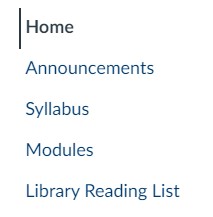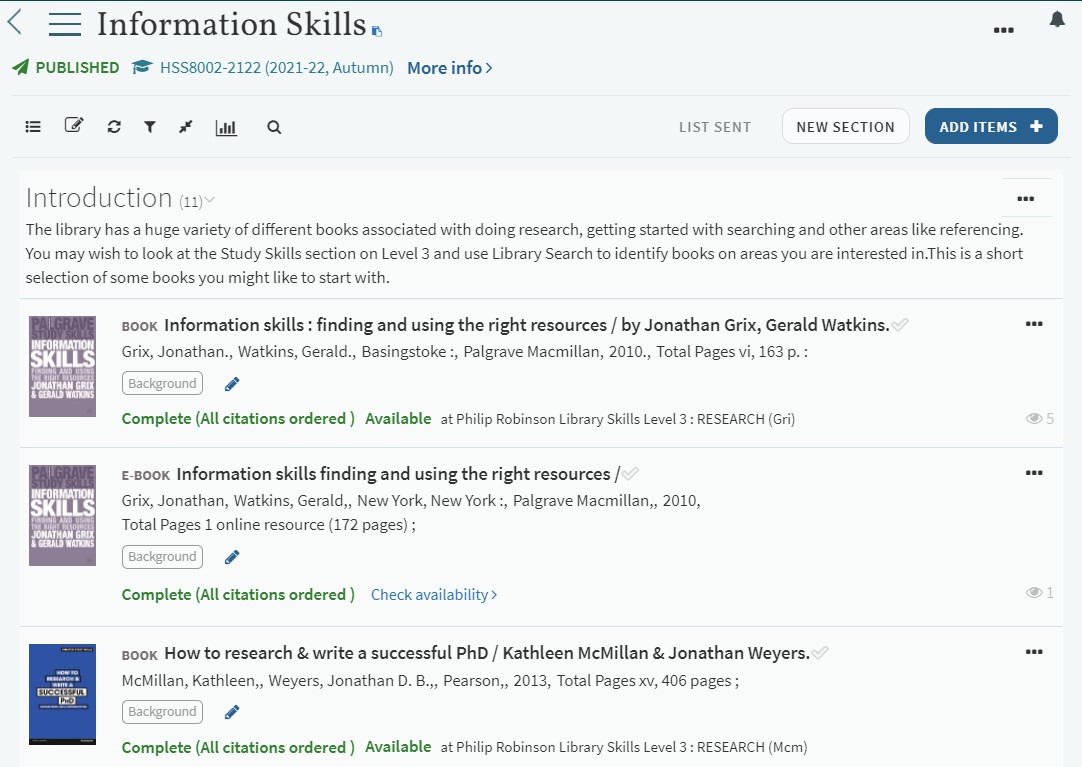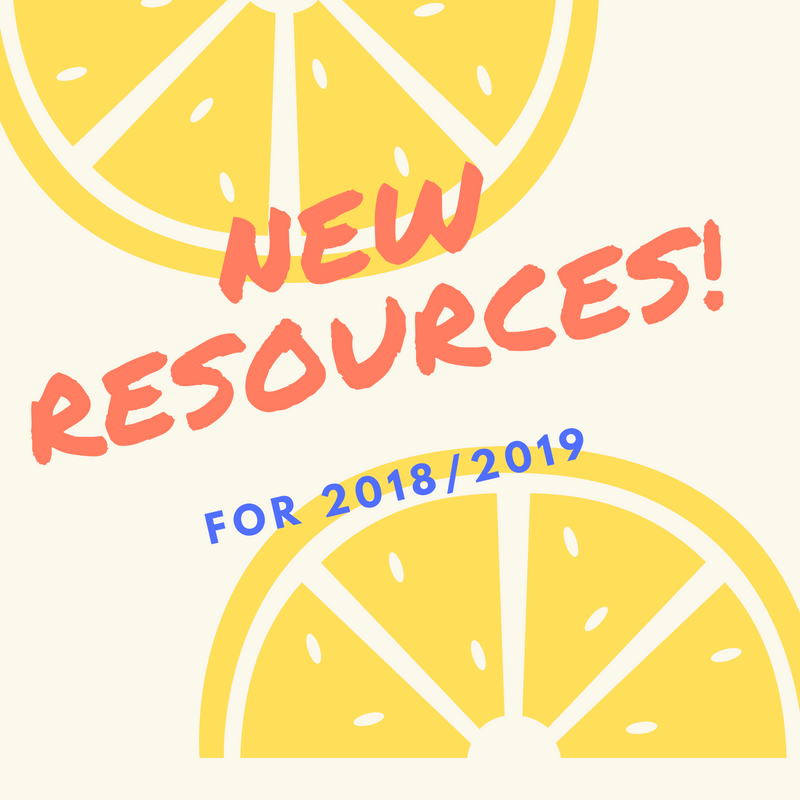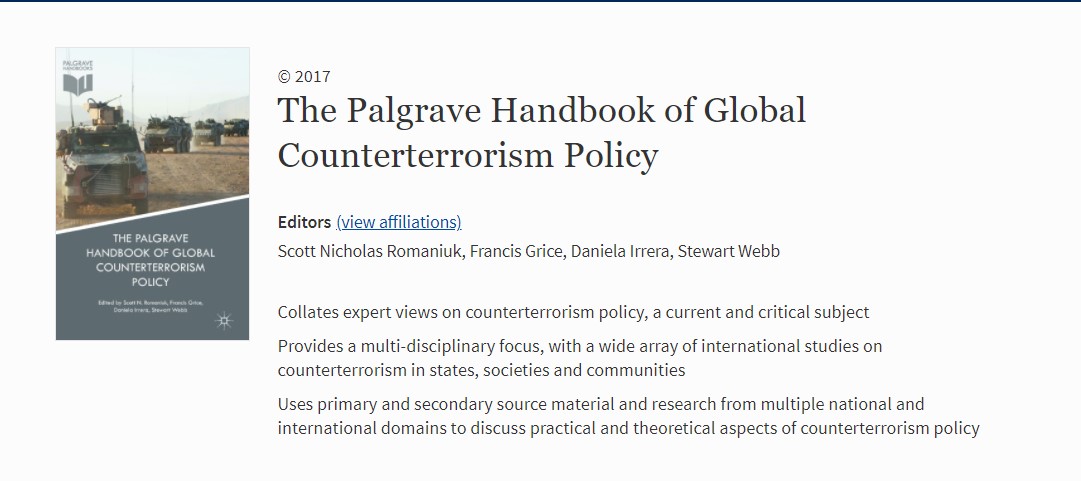We have a service called “Books on Time” for students. This allows you to tell us about the books you need for your studies. If we don’t have the books you need, simply complete the web form and we’ll see if we can buy them. For books we already have in stock, if they are out on loan please make a reservation/hold request using Library Search.
Further information about Books on Time
In Semester two, academic year 2017/2018 we bought the following items after requests from students in GPS.
There were 104 requests from 54 students totaling £4760.50 (60% of requests from undergraduates, 12% from Postgraduate taught and 28% from Postgraduate Research)
| Title | Now in stock |
| A Decade of Dark Humor: How Comedy, Irony and Satire Shaped Post-9/11 America | 1xlong |
| A Life in Trans Activism | 1xlong |
| A People Stronger: The Collectivisation of MSM and TG Groups in India | 1xlong |
| A People’s Peace in Cyprus: Testing Public Opinion on the Options for a Comprehensive Settlement | 1xlong |
| Affect, Space and Animals (Routledge Human-Animal Studies Series) | 1xlong |
| African religions and philosophy | 1xlong |
| Age Studies A Sociological Examination of How We Age and are Aged Through the Life Course | 1xlong |
| Age, Gender and Sexuality Through the Life Course: The Girl in Time | 1xlong |
| Aged by Culture | 1xlong |
| Animal Geographies: Place, Politics and Identity in the Nature-culture Borderlands | 1xlong |
| Animal Oppression and Human Violence: Domesecration, Capitalism, and Global Conflict (Critical Perspectives on Animals: Theory, Culture, Science and Law) | 1xlong |
| Animal Revolution: Changing Attitudes Towards Speciesism | 1xlong |
| Animal Rights/Human Rights: Entanglements of Oppression and Liberation (Critical Media Studies: Institutions, Politics, and Culture) | 1xlong |
| Before birth: understanding prenatal screening | 1xlong |
| Café Society | 1xlong |
| Celebrity Humanitarianism and North-South Relations | 1xlong |
| Children’s Emotions in Policy and Practice | 1xlong |
| Criminal Love? Queer Theory, Culture and Politics in India | 1xlong |
| Critical Realism: An Introduction to Roy Bhaskar’s Philosophy | 1xlong, 1xebook |
| Culture and Politics: A Reader | 6xlong, 1xstc |
| Cyprus: A Conflict at the Crossroads | 1xlong |
| Debates in values-based practice: arguments for and against | 1xlong |
| Different Faces of Attachment: Cultural Variations on a Universal Human Need | 1xlong |
| Disrupting homelessness. | 1xlong |
| Domestic Animals, Humans, and Leisure: Rights, Welfare, and Wellbeing (Routledge Research in the Ethics of Tourism Series) | 1xlong |
| Emotions and Social Relations | 1xlong |
| Expatriate identities in postcolonial organizations: working whiteness | 1xlong |
| Exploring Parliament | 1xlong |
| Feminism and Families | 1xlong |
| Foucault Beyond Foucault: Power and its Intensifications Since 1984 | 2xlong |
| Gendered Bodies: Feminist Perspectives | 1xlong |
| Global Homophobia: States Movements and the Politics of Oppression | 1xlong |
| Guns Don’t Kill People, People Kill People: And Other Myths About Gun Control | 1xlong |
| Handbook of Environmental Economics | 1xlong |
| Hijras, the Labelled Deviants | 1xlong |
| How Europeans View and Evaluate Democracy | 1xlong |
| Human and Other Animals: Critical Perspectives | 1xlong |
| Identity and Social Change | 1xlong |
| Imagining the Modern: The Cultures of Nationalism in Cyprus | 1xlong |
| Jackson Rising: The Struggle for Economic Democracy and Black Self-Determination in Jackson, Mississippi | 1xlong |
| Justice for Laughing Boy: Connor Sparrowhawk – A Death by Indifference | 1xlong |
| Laughing Matters: Humor and American Politics in the Media Age | 1xlong |
| Let Africa Lead | 1xlong |
| Local Agency and Peacebuilding: EU and International Engagement in Bosnia-Herzegovina. Cyprus and South Africa | 1xlong |
| Loneliness and its Opposties: Sex, Disability and the Ethics of Engagement | 1xlong |
| Made in India: Decolonizations, Queer Sexualities, Trans/National Projects | 1xlong |
| Markets of Dispossession NGOs, Economic Development and the State in Cairo | 1xlong |
| Masculinities in Transition | 1xlong, 1xebook |
| Me Hijra, Me Laxmi | 1xlong |
| Media and the Riots: A Call to Action | 1xlong |
| Minority Women and Austerity: Survival and Resistance in France and Britain | 1xlong |
| Muslim Spaces of Hope: Geographies of Possibility in Britain and the West | 1xlong |
| Nationbuilding, Gender and War Crimes in South Asia | 1xlong |
| Negotiating Europe: Europeanness Since the 1950s | 1xlong |
| Occidentalism: The West in the Eyes of its Enemies | 1xlong |
| On What Matters: Volume 1 | 1xlong |
| Placing Animals: An Introduction To The Geography Of Human-Animal Relations (Human Geography In The Twenty-First Century: Issues And Applications) | 1xlong |
| Poverty and Social Exclusion in the UK, Volume 2: The Dimensions of Disadvantage | 1xlong |
| Poverty Propaganda | 1xlong |
| Prostitution, Harm and Gender Inequality | 1xlong |
| Race and the Yugoslav Region: Postsocialist, Post-Conflict, Post-Colonial? | 1xlong |
| Regarding Animals (Animals Culture And Society) | 1xlong |
| Re-Imagining North Korea in International Politics | 1xlong |
| Religion Matters | 1xlong |
| Russian Homophobia from Stalin to Sochi | 1xlong |
| Smart Green Cities: Towards a Carbon Neutral World | 1xlong |
| Snow and Ice-Related Hazards, Risks and Disasters | 1xlong |
| Social Lives With Other Animals: Tales of Sex, Death and Love | 1xlong |
| Social Mobility for the 21st Century: Everyone a Winner? | 2xlong |
| Sport and Postcolonialism | 1xlong, 1xebook |
| Switzerland and the European Union: a close, contradictory and misunderstood relationship | 1xlong |
| The Changing Nature of the Graduate Labour Market: Media, Policy and Political Discourses in the UK | 1xlong |
| The Concept of Race in South Asia | 1xlong |
| The Cyprus Referendum: A Divided Island and the Challenge of the Annan Plan | 1xlong |
| The Disability Studies Reader 2016 | 1xlong |
| The Dreaded Comparison: Human and Animal Slavery | 1xlong |
| The European Union and Africa: The Restructuring of North-South Relations | 1xlong |
| The European Union and Africa: The Restructuring of North-South Relations | 1xebook |
| The Geopolitics of Emotion: How Cultures of Fear, Humiliation and Hope are Reshaping the World | 1xlong |
| The Intimate Lives of Disabled People | 1xlong |
| The Moral Economists: R. H. Tawney, Karl Polanyi, E. P. Thompson, and the Critique of Capitalism | 1xlong |
| The Myrdalsjokull Ice Cap: Glacial Processes, Sediments and Landforms on an Active Volcano | 1xebook |
| The New Oxford Handbook of Economic Geography | 1xebook |
| The New Social Mobility: How the Politicians Got It Wrong | 1xlong |
| The People vs. Democracy: Why Our Freedom Is in Danger and How to Save It | 1xlong |
| The Public Shaping of Medical Research: Patient Associations | 1xlong |
| The Retreat of Western Liberalism | 1xlong |
| The Routledge Handbook of European Security | 1xlong |
| The Truth About Me: A Hijra Life Story | 1xlong |
| The Violence of Austerity | 1xlong |
| Tourism and Animal Ethics (Contemporary Geographies of Leisure, Tourism and Mobility) | 1xlong |
| Tourism, Power and Culture: Anthropological Insights | 1xlong |
| Transitions to Adulthood Through Recession: Youth and Inequality in a European Comparative Perspective | 1xlong |
| Transnational Migration and Home in Older Age | 1xlong |
| Trust in International Cooperation: International Security Institutions, Domestic Politics and American Multilateralism | 1xlong |
| United Nations Development Programme and System | 1xlong |
| Violent Borders | 1xlong |
| We Kill Because We Can From Soldiering to Assassination in the Drone Age | 1xlong |
| What Would Animals Say If We Asked the Right Questions? (PostHumanities) | 1xlong |
| Women and Militant Wars: The Politics of Injury | 1xlong, 1xebook |
| Women in African Parliaments | 1xlong |
| Young People in the Labour Market: Past, Present, Future (Youth, Young Adulthood and Society) | 1xlong |
| Young People Re-Generating Politics in Times of Crisis | 1xlong |
| Young People’s Perspectives on Education, Training and Employment: Realising Their Potential | 1xlong |






